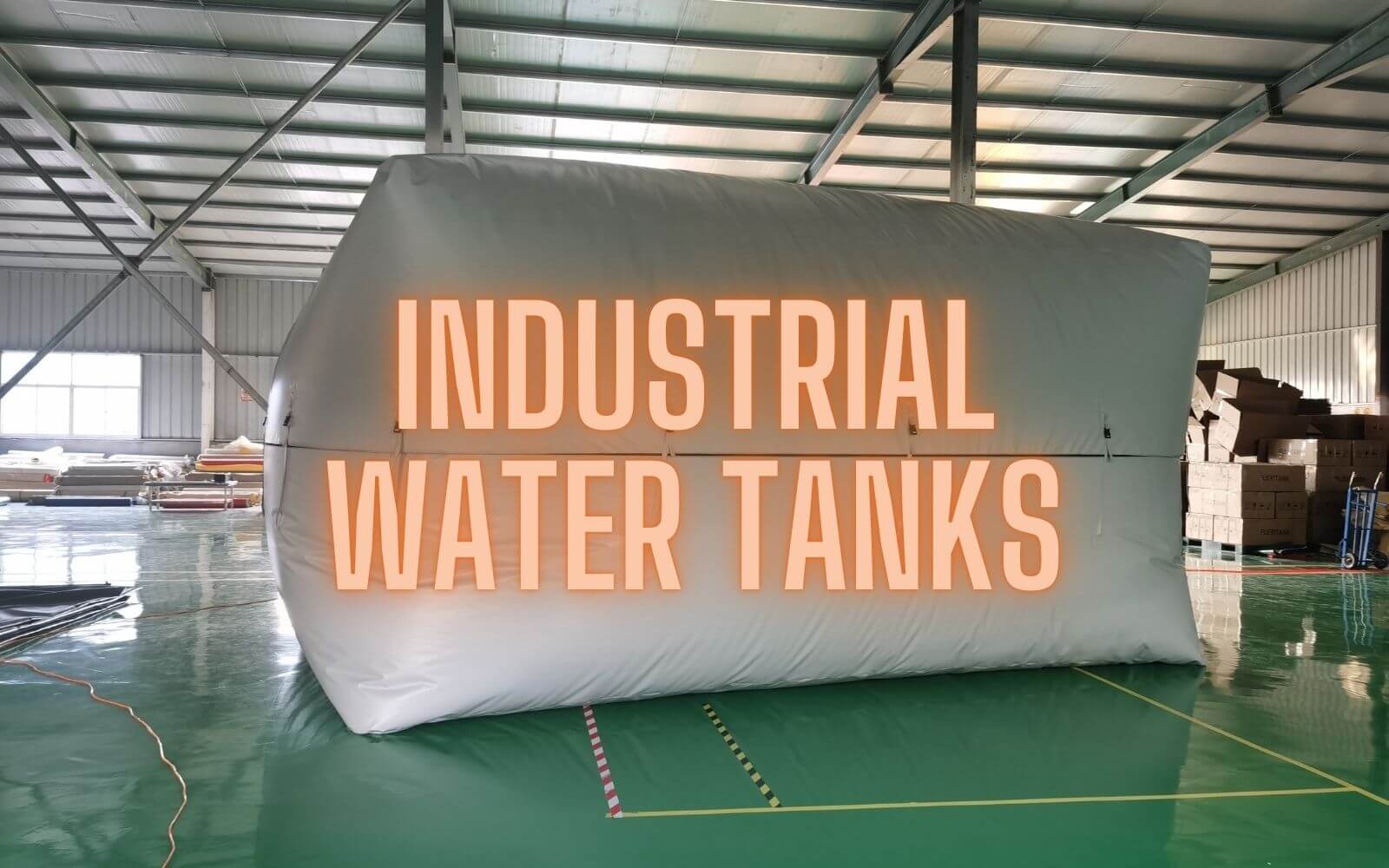INDUSTRIAL WATER TANKS
In industries where reliable water storage is critical—whether for mining operations, agricultural irrigation, or emergency response—flexible industrial water tanks plays a fatal role in water storage solutions. Unlike traditional rigid tanks, these collapsible, heavy-duty bladders offer unmatched portability, cost efficiency, and adaptability.
But what exactly are they, and why are industries worldwide switching to flexible water storage? In this guide, we’ll explore:
What flexible industrial water tanks are and how they work
Key benefits over steel, concrete, or fiberglass tanks
Top industrial applications (from mining to disaster relief)
Material choices (PVC, TPU, the difference of those materials)
By the end, you’ll understand why these tanks are revolutionizing liquid storage across multiple sectors.
What Are Flexible Industrial Water Tanks?
Flexible industrial water tanks (also called collapsible water bladders or portable water storage tanks) are small&large available, durable containers designed to store and transport water or other liquids. Made from high-strength, flexible materials like PVC, TPU, they can be:
Deployed quickly – Unfold, fill, and use within minutes.
Collapsed when empty – Save up to 90% storage space, when empty,roll and compact into carton for storage.
Customized in size and shape – Ranging from 50 liters to over 100,000 liters, no matter where the application is, customizable shape can perfectly fit the space.
Unlike rigid steel or concrete tanks, these industrial water tanks are lightweight, easy to transport, and require no permanent installation, making them ideal for temporary sites, remote locations, and emergency scenarios.
Key Benefits of Flexible Water Tanks
Why are industries shifting from traditional tanks to flexible alternatives? Here are the top advantages:
1. Lightweight & Portable
Weigh up to 80% less than steel or concrete tanks.
Can be folded and transported in trucks, helicopters, or shipping containers, to reduce the cost of shipment.
Small package means less equipment requested while insallation, like the 10,000L can move and install by labor.
Ideal for remote mining sites, military bases, and disaster zones where logistics are challenging.
2. Cost-Effective Storage Solution
Lower upfront cost than permanent tanks, less labor cost (no welding, foundations, or cranes needed).
Reduced shipping costs (empty tanks take minimal space).
No corrosion risk, eliminating long-term maintenance expenses.
3. Corrosion & Chemical Resistant
Unlike metal tanks, flexible bladders won’t rust or degrade from water, fertilizers, or mild chemicals.
UV-resistant coatings prevent sun damage in outdoor use.
4. Space-Saving & Easy Storage
When empty, tanks fold down to a fraction of their size.
No need for large storage yards—ideal for urban construction sites or temporary camps.
5. Quick Installation & Relocation
No construction required—just lay the bladder on level ground and fill.
Can be moved without dismantling, saving time and labor.
Top Industrial Applications of Flexible Water Tanks
Flexible water tanks are used across dozens of industries where reliable, mobile water storage is essential. Here are the most common applications:
1. Mining & Construction Sites
Dust suppression (spraying water on roads to reduce airborne particles).
Equipment washing and worker sanitation in remote locations.
Emergency water reserves after disaster hits.
Road compactor, the flexible is a easy method to work as compactor and environment friendly.
2. Agriculture & Farming
Irrigation storage for crops during dry seasons.
Livestock watering in pastures without pipelines.
Rainwater harvesting in drought-prone regions and seasons.
3. Firefighting & Emergency Response
Rapid deployment in wildfires or urban firefighting.
Disaster relief (hurricanes, earthquakes) for clean drinking water.
Military field operations where fixed infrastructure is unavailable.
4. Oil & Gas Industry
Fracking water storage at drilling sites.
Potable water for remote worker camps.
Containment bladders for spill control.
5. Military & Defense
Field hydration systems for troops in arid regions.
Mobile medical water storage in field hospitals.
Deployable emergency reserves in conflict zones.
Material Options for Flexible Industrial Water Tanks
Not all flexible tanks are the same—material choice impacts durability, chemical resistance, and lifespan. The most common options:
| Material | Best For | Lifespan | Key Features |
| PVC | Non-drinking water,chemical liquid | Over 10 years | Affordable, UV-resistant |
| TPU (Polyester TPU) | Harsh chemicals, fuel | Over 10 years | Extreme durability, abrasion-resistant, UV-resistant, fuel compatible |
| TPU(Polyethen TPU) | Potable water | Over 10 years | Puncture-proof, high tensile strength, food grade |
Pro Tip: For long-term outdoor use, look for tanks with UV stabilization to prevent sun degradation.
Are Flexible Water Tanks Right for Your Needs?
Flexible industrial water tanks are not a one-size-fits-all solution. Consider them if you need:
✅ Temporary or mobile water storage
✅ Fast deployment without construction
✅ Cost savings over steel/concrete tanks
✅ Space-efficient storage when empty
However, rigid tanks may still be better for:
❌ Permanent, high-pressure systems
❌ Underground or high-wind installations
Final Thoughts
Flexible industrial water tanks offer unmatched versatility, cost savings, and portability for industries that require on-demand liquid storage. Whether you’re in mining, agriculture, firefighting, or disaster response, these collapsible bladders provide a reliable, efficient alternative to traditional tanks.
Need help choosing the right tank? Contact Flixtank for a customized solution based on your industry, capacity, and material requirements.








